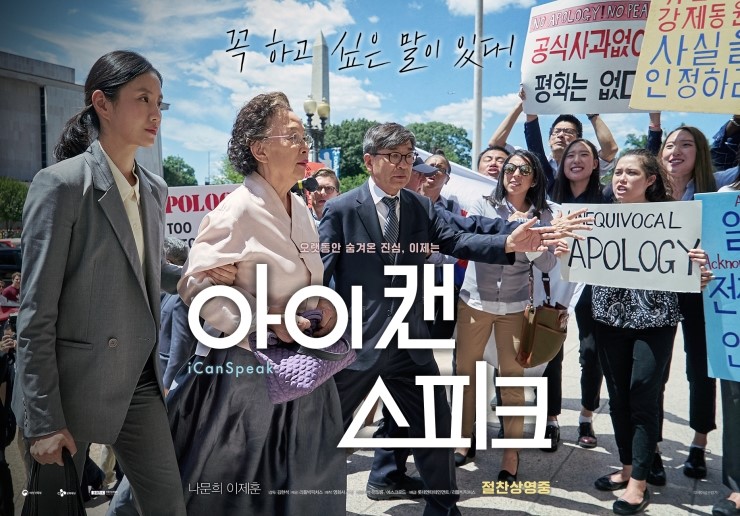Recently, the Korean drama “The Glory” gained popularity for depicting the desperate revenge of victims of school violence. However, along with its success, negative public opinions emerged regarding the excessive and detailed depiction of violence in this drama and other popular shows like "Revenge of Others," "Hellbound," and "All of Us Are Dead". Critics argued that these shows glorified violence by depicting it in excessive detail, causing discomfort and leading some viewers to stop watching. In my opinion, it is important to avoid glorifying violence in media hits and instead prioritize a refined freedom of refined expression that reflects a sensitivity towards the people viewing the content.
Excessive depictions of violence can become a source of entertainment or a part of marketing a show, but the scenes fail to prioritize a victim's pain. The rise of so-called "Summary Books" and "GIF" formats highlight a drama or movie’s most exciting and violent scenes. This material is then indiscriminately distributed on platforms such as YouTube and TikTok, where children can easily access the content. In addition, violence has become a meme among the young generation, with graduation banners quoting lines from violent dramas hanging around the schools. The increasing prevalence of violent content has led to a desensitization of consumers and producers to its effects on society. Unfortunately, such content continues to receive explosive reactions, earning producers huge profits and incentivizing them to create similar or even more controversial content. Han Sang-hee, head of the Citizens' Coalition for Economic Justice, argues that viewers should be more cautious when watching this type of content.
 |
| ▲ Child Exposed to Violent Depiction on TV (Photo from Lifespan) |
Unnecessarily detailed expressions of violent scenes in media can have negative effects on viewers, particularly those who have experienced similar trauma in the past. This can trigger post-traumatic stress disorder (PTSD) and psychological pain or physiological reactions. Therefore, media producers should approach violent content reproduction carefully. Song Seok-joo, a movie critic, emphasized the "ethics of reproduction." He thinks it is important to avoid reproducing someone else’s misfortune in a way that makes them uncomfortable, as this can lead to secondary victimization rather than simply being considered art. Moreover, excessive depictions of violence can trigger copycat behaviors. For example, in Japan last year, indiscriminate crimes were committed that mimicked the main character committing a crime in the movie "Joker." Also, in Korea in 2019, someone committed a crime similar to scenes from the drama "Killing Eve." Violent content can increase aggressive thoughts and actions due to our over-immersion and create a false sense of value that violence is justified. These events highlight the need for content producers to treat violent scenarios with caution and for governments to strengthen media regulations to prevent increased social problems. Since last year, Germany has implemented the Hate Speech Law, which punishes those who post fake news with expressions of hate on SNS. To encourage responsible content production and consumption, platform companies like Twitter, YouTube, and Facebook have 24 hours after detection to remove expressions of hate, with the possibility of facing fines of up to 50 million euros for violations. Implementing similar regulations in Korea would likely increase the scrutiny of content creation and encourage viewers to be more cautious when consuming potentially harmful expressions of media.
In contrast to work that openly expresses violence, there are some productions that have been recognized for not relying on violent scenes for increased viewership. Instead, they imply a violent situation through auditory elements or convey the victim's painful past through indirect lines and an appropriate atmosphere. One example is the movie "House of Hummingbird", which implies violence through the sound of the main character Eun-hee's brother hitting her. In addition, the director depicts the commonality of violence through dialogue between Eun-hee and Ji-sook. In another movie called "i Can Speak", the director portrays the painful past of Ok-bun, a victim of the Japanese Military Sexual Slavery, through auditory elements rather than graphic scenes. This is a distinct difference from the previous movies, which were criticized for being cruel and inflammatory because they explicitly portrayed the painful experiences of the victims. According to film critic Song Seok-joo, the later movies prioritize the story of the main character who endured violent situations rather than focus on violent scenes for excitement and pleasure. It is possible to fully understand the situation without directly depicting violent scenes. The best way to portray any violence in the media is to avoid focusing on the excitement and pleasure of the film above its theme or intended message.
 |
| ▲ Poster of the Movie “i Can Speak” (Photo from Little Big Pictures) |
What should be emphasized in media production is not just a shocking entertainment value, but that all viewers are able to easily digest the content without irritation. This means avoiding unnecessarily provocative depictions of violence and using indirect forms of expression whenever possible.
Now is the time to be mindful of the level of violence viewers are being exposed to and to be considerate of the unintentional impact it can have on them. Rather than prioritizing violent scenes for shock value or realism, producers should consider the potential long-term effects on viewers’ memories. Consumers also have the right to reject any violent media and should be encouraged to resist and respond quickly to any problematic depictions of violence. Prioritizing accessibility and sensitivity in media content can create a more inclusive and enjoyable experience for all audiences.
이은희 dankookherald@gmail.com






